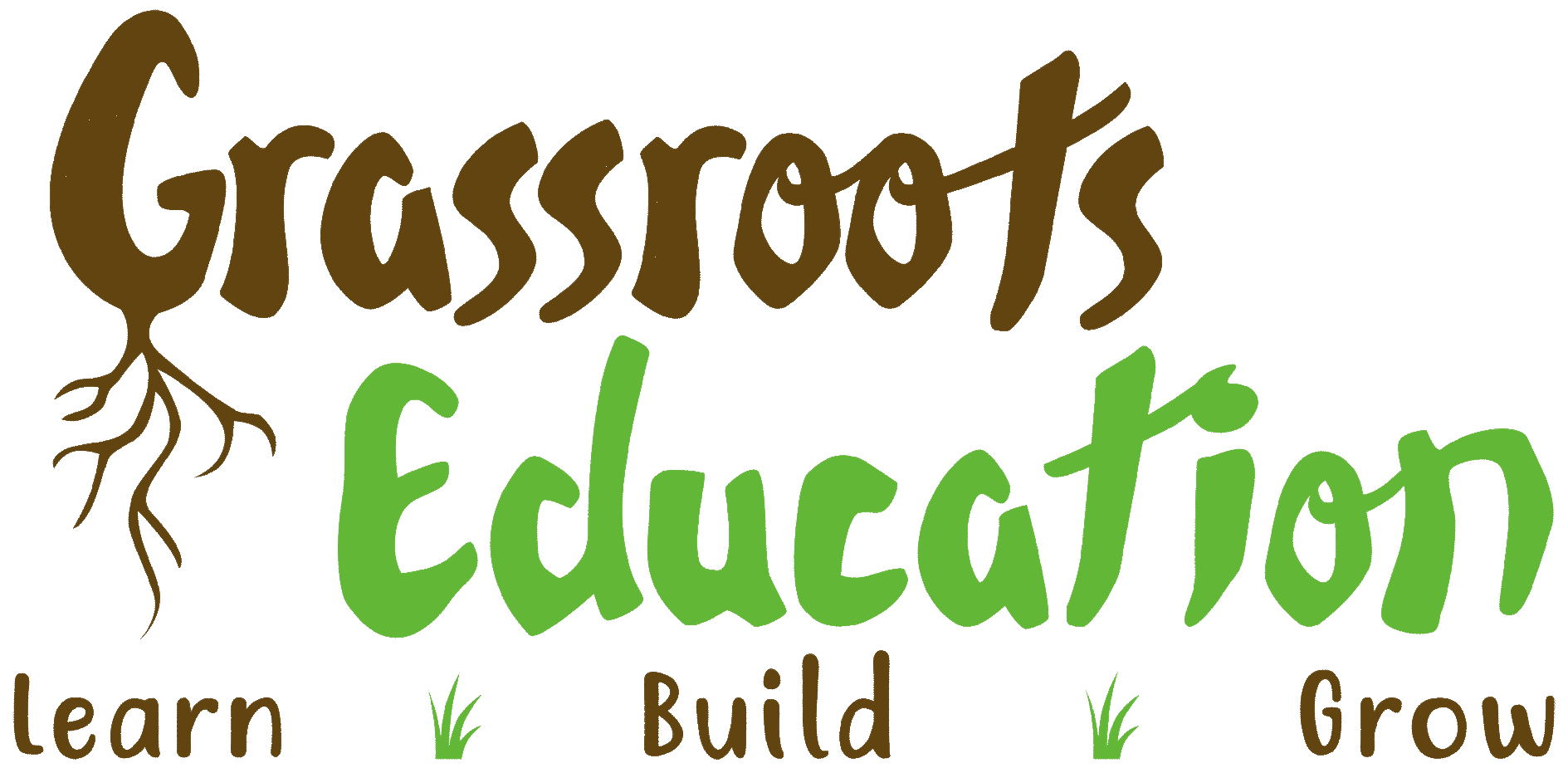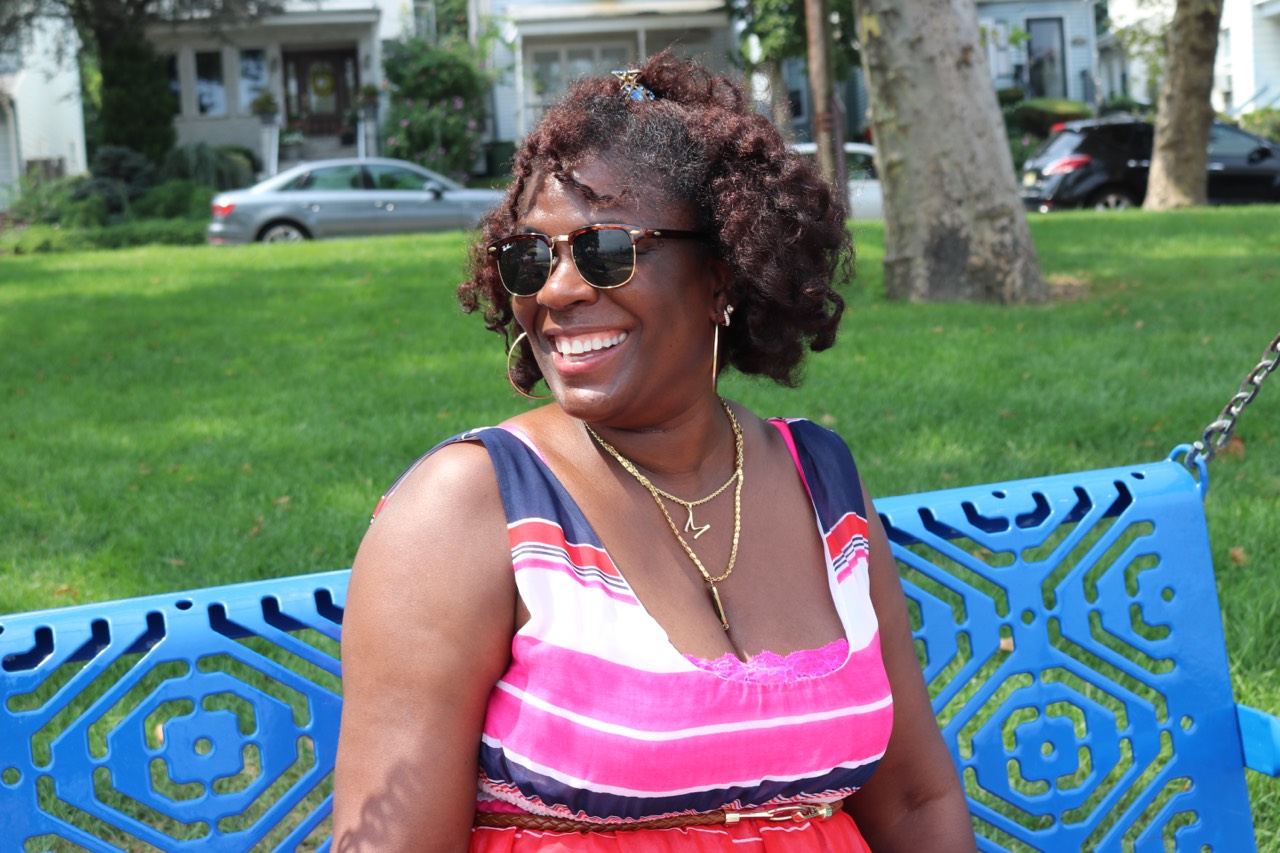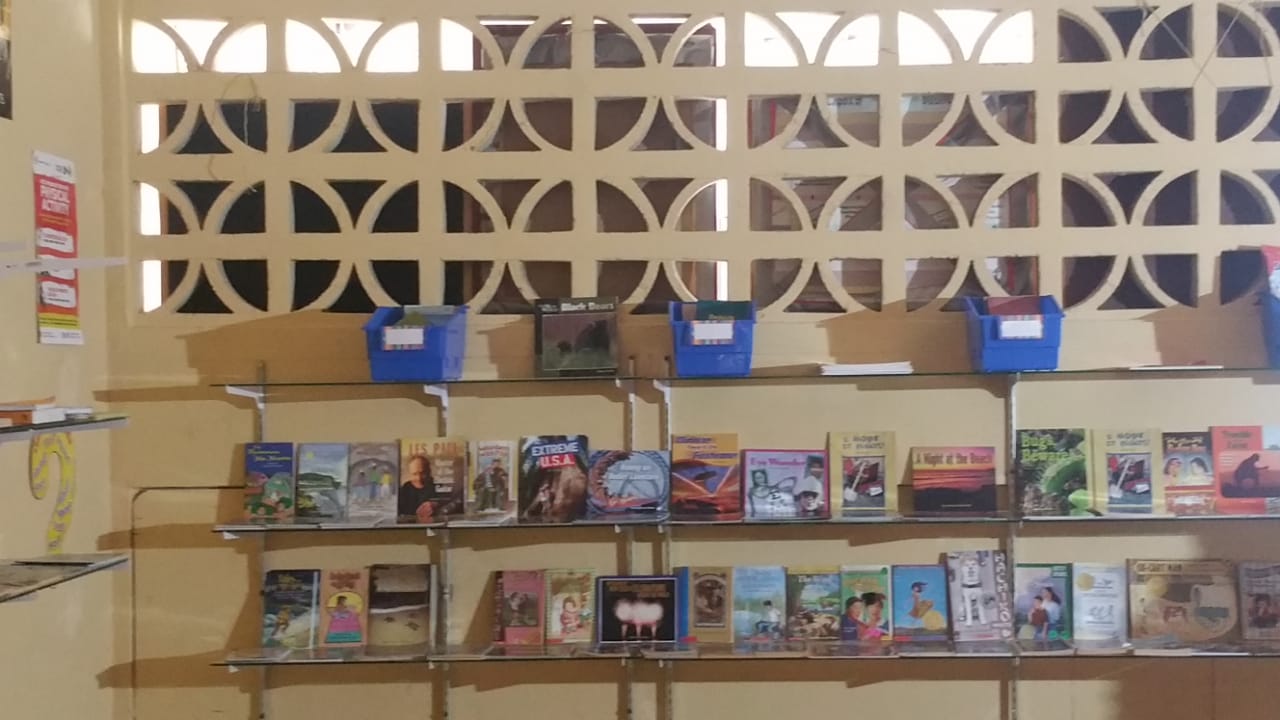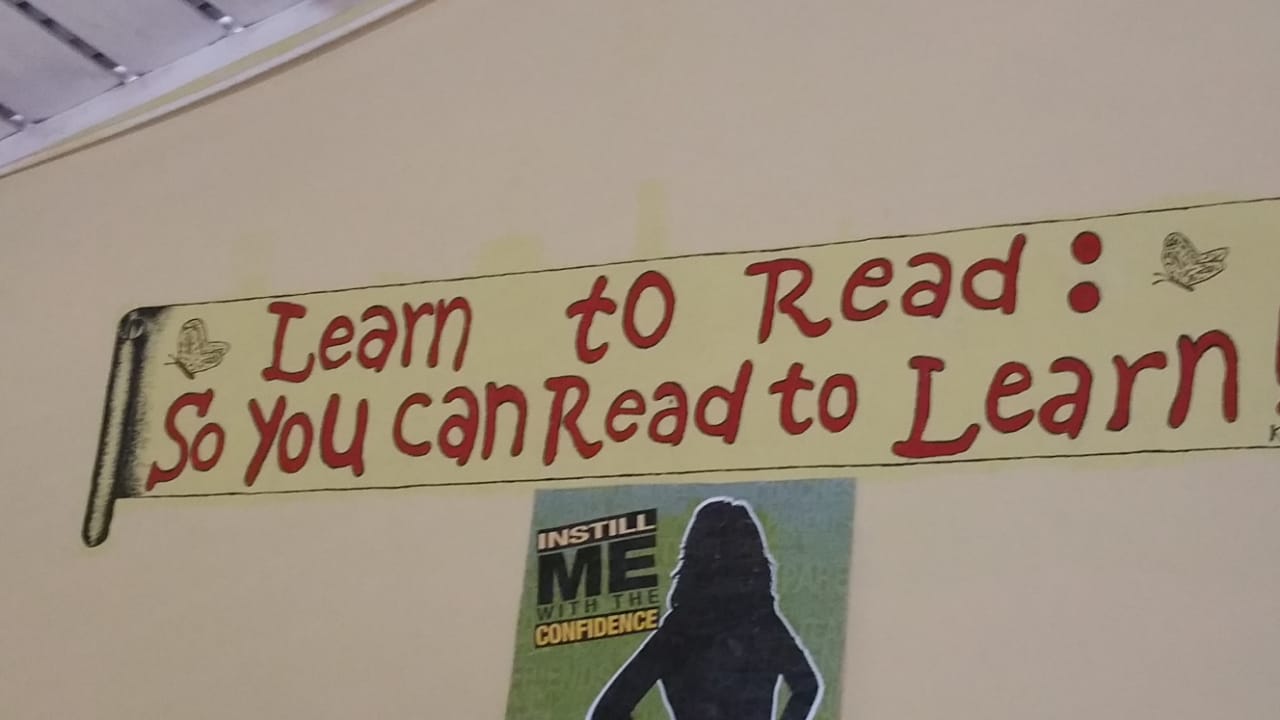
by Marcia Davis-Dawkins | Oct 1, 2018 | Education, Kids, Parents, Teachers, Teens

By Dr. Marcia Davis-Dawkins
In his First Inaugural Address, Franklin D. Roosevelt (FDR) said; “ The only thing we have to fear is fear itself.” I found myself thinking about that quote recently when I was enlisted to present professional development to a group of educators like myself. What I inferred from FDR was that if we fear things, it will simply make matters worse. In effect, it can damage our self-confidence and wane our ability to move forward. The fears we don’t face become our limits. Understanding that gave me the courage to work through my trepidation with favorable results.
As humans we fear many things,
so much so that there are several characteristics or forms of fear known as phobias. You name it and there is a phobia for it. Why do we have fear? In my case, was I afraid that my audience would berate me, or that I would falter in the delivery of the material? Why do you fear and what do you fear? The high school I attended in Jamaica had several huge lignum vitae trees on the school property. These trees provided shade for the girls, as well as a place to sit when we wanted to eat lunch outdoors. (Seats with tables were made around the trees). As wonderful as the trees were, during the school year they were filled with caterpillars – they were everywhere and infested our comfortable haven while we were trying to enjoy lunch or waited to switch classes. The fear was the caterpillars!!! We knew that they would eventually be beautiful butterflies, and our fear was irrational, but that creepy, crawly stage horrified us.
As educators we fear getting a bad evaluation, having a class we are unable to manage, missing deadlines, performing poorly on a test, among many other things. But I do want to point out that there are times when fear is an asset and becomes a strength — simply because we didn’t realize that we were capable of doing certain things.
Since we are all humans, we know that our students will have fears as well – fear of the teacher, fear of learning, fear of being bullied, fear of a new environment and even fear of the unknown. It is our job and one of the many hats that we wear to help them conquer their angst and help them to believe in themselves. Some of those same students might even have their teachers to thank because the teachers helped them to overcome their fears. I know that because I am one of those teachers whose former teacher helped me to conquer my fear of being a teacher! Let us encourage our students, fellow educators and ourselves since encouragement brings oxygen or nourishment to the soul. Remember that FEAR can translate to Forget Everything And Run or Face Everything And Rise. The choice is yours.
Rise Above

by Marcia Davis-Dawkins | Sep 3, 2018 | Education, Parents, Teachers
Giving Back
I was recently privileged to participate in an amazing philanthropist’s foundation, the purpose of which was to give back to the people of the home where she was born and raised. Like most people that I know, this woman grew up in an environment in which she had little or nothing financially or economically. Yet, she was able to provide medical and dental services and clothing to members of that community. How was she able to do this singlehandedly? Well, she wasn’t, but she realized that what “I” cant do, “we” can. She possessed the wherewithal and initiative to enlist the goods and services of eighty-four volunteers, committed to a common purpose, to achieve her vision.
Though disadvantaged by a shortfall of funds in her youth, there was no scarcity of love in her family of fourteen children. As I reflect on the experience that I had with this philanthropist as she served her community, I thought of a quote by author Mitch Albom, from Tuesdays with Morrie: “Money is not a substitute for tenderness, and power is not a substitute for tenderness.” This woman showed that while it takes money to achieve and accomplish goals, the motive and passion to endow springs from the heart. She was able to be educated and did not stop at the bare minimum. She went on further to obtain her doctoral degree and is now giving back to her community. What an accomplishment and joy!
Her gesture and her organization further encouraged me to want to give back to my community to students who are needy and still willing to learn. It shows that even when I think that I have nothing to contribute, there are always others who are worse off than I. This summer I was able to give books to students who enjoy reading so I could help to foster their reading. I was able to restore a school’s library. The books and shelves in the library were ancient and termite eaten. I can’t wait to see the joy on the students’ faces as they see the newly restored library and the books that they can actually read. This giving back process lends a level of satisfaction, pride and a sense of purpose. It will be my job to continue supplying the books for this library and encourage students to read and provide an environment that supports the love of reading. It also reinforces the quote, “It is more blessed to give than to receive.” It tells me that something done for the right reason can make the community, or better yet, the world, a better place. I can and will make a difference in students’ lives.
How can we give back to our students in our classroom, school, school district, or students in another country? We can start by giving/sharing our knowledge of the curriculum, be a role model, and show them that they matter in life. We can show how to give with a positive attitude. We should teach our students how to give with a purpose because sharing is caring. As a teacher my mantra has always been that if I can get one student to say, “I get it!” and watch the sparkle in his/her eyes, then I am giving back and I have a great job! As we go back to the classroom, let us go willingly and see how we can give back in our own small ways that which might be BIG to our students. It is worth remembering C.M. Taylor’s words “The only thing that any child should hunger for is knowledge.” Best wishes as you cure this hunger!
A Word
I was Born Marcia Angela Davis in Jamaica, West Indies I have traveled and lived in various parts of the world including United Kingdom and Europe. In my mid-twenties I was presented with the opportunity to migrate to the United States and experienced the following: – culture shock, racism and different class system. In a state of confusion I tried to find my identity as I was surrounded with a vast array off sub-cultures. I was a dark-skinned, Black woman of Afro-Caribbean decent and lived in mixed middle class community in the state of New Jersey. My skin-color meant many viewed me as poor, even though in my native country, I attended a private school and dressed similarly to the middle-class students.
Read More
– Dr.Marcia Davis-Dawkins

by Marcia Davis-Dawkins | Jun 14, 2018 | Education, Kids, Parents, Teachers
Emotions/Feelings

By Dr. Marcia Davis-Dawkins
Please Read My Poem on Emotions! Sadness and Happiness
Brave Fabulous Talented
Lonely
and more …

The Power of Words
The Power of Words II

by Marcia Davis-Dawkins | May 22, 2018 | Education, Parents, Teachers
The Teacher, the Leader

By Dr. Marcia Davis-Dawkins
Teachers’ Appreciation Week is celebrated in many parts of the world. In the United States, National Teacher Appreciation Month takes place for the entire month of May each year, but the majority of the festivities center around the first week of May, which has officially been dubbed “Teacher Appreciation Week.”
As a teacher, there are many hats that are worn, one of which is a leader. The leader in the classroom motivates students. Bo Bennet once said, “Enthusiasm is excitement with inspiration, motivation, and a pinch of creativity.” This quote exemplifies what teachers do daily.
The teacher establishes a learning environment
The teacher establishes a learning environment in which each student feels like a key person in a group and where the teacher-student interactions validate and support self-esteem. He/she takes care of routine details and has a clear set of logical standards and systematically follows it and wants others to also do so. As a teacher with rules and expectations, he/she will be more flexible and provide an environment so to be more effective in the classroom.
The teacher in the classroom has many interpersonal relationships with students so much so that the teacher can influence the students. For example, a teacher guides a student to want to do a particular subject or assignment based on that teacher’s passion about the subject area. The teacher is seen as a change agent for students because the leader/teacher helps to improve the students’ learning and behavior development. The teacher guides the students through the curriculum so that they learn what is required for a particular grade level. Because of this guidance from the teacher, the students are somehow transformed academically or at time behaviorally.
Interestingly enough, the teacher who is a leader in the classroom, could also help to develop the students to be leaders in the classroom and eventually in whatever they decide to undertake in their adult lives. There are many critics who might think that teachers are not leaders, but they do have much power, control and influence. If used effectively these assets can make a difference in the classroom, district and community.
Teachers have genuine care and concern for their students and are usually very passionate about their jobs, and these are strong elements of being a good leader.
As a teacher and leader…

As a teacher and leader one has to communicate effectively with all the stakeholders in the school system, the administrator, the parents, faculty members, and members of the community. The teacher also has to build and maintain trust, and manage conflict in the classroom. The teacher as a leader has to ensure that there is cohesiveness in the classroom.
There are teachers who, without a doubt, use their leadership positions negatively and they don’t realize that this position requires responsibility and demands flexibility to deal with students with various behavior challenges. It takes a special person to be a teacher who is a leader, who is faithful, available and also teachable!!!
Learning Designed For Every Student
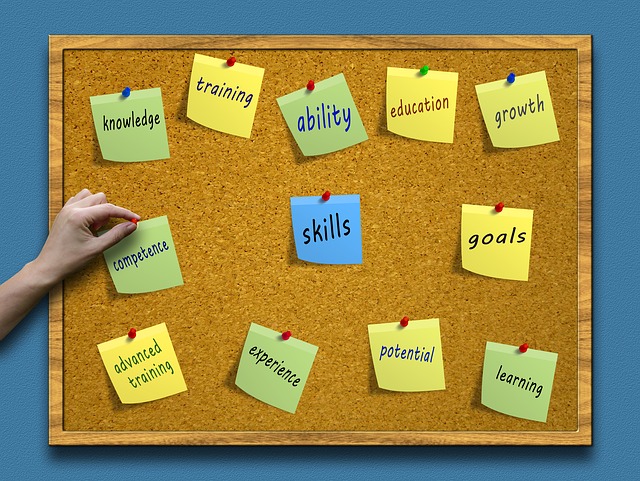
by Marcia Davis-Dawkins | Mar 30, 2018 | Education, Kids, Parents, Teachers
Am I Dependable?

By Dr. Marcia Davis-Dawkins
Neal A. Maxwell once said, “God does not begin by asking us about our ability, but only about our availability, and if we then prove our dependability, he will increase our capability.” One of the qualities that I hold dearly is being dependable. Being dependable means giving your word and sticking to it, so others can see that you are reliable. Of course, there are sometimes unforeseen occurrences that might stop you from fulfilling your promise, and that is understandable. However, if a person is consistently late or doesn’t keep his/her word, then that is problematic! For the most part, a person should be accountable for his or her actions.
Being dependable 
Being dependable includes being trustworthy and reliable. This is regarded as a skill and character trait that employees deem necessary to be part of their business. If we were to think about the word dependable, I am certain that some of us will start thinking of friends whom we consider reliable. There are some with who we have been through thick and thin and we know that we can rely on them to literally move mountains for us. These friends are also the ones that you can always count on to dig us out of any ditch or simply just to be there for us. I have friends who, despite being separated by distance and time zones, I still routinely communicate with and these people will traverse the globe to be my side if needed. If I were to have a problem to deal with, I can call them at odd hours of the nights, and they are willing to lend a helping hand, provide a listening ear or make suggestions. I also know for certain that if they say they will do something, it will be done. They are steadfast, loyal and staunch constants in our lives. We have all heard of the old adage, “A friend in need is a friend indeed,” and when you have true, dependable friends, that is definitely an advantage. There are friends that if they tell you that they will be at a place at a certain time, they are there. If they aren’t,  then you wonder if something went wrong because you know you can always rely on them. If you are constantly late, then you are not dependable and I might go further to say that you might not be a committed friend or colleague.
then you wonder if something went wrong because you know you can always rely on them. If you are constantly late, then you are not dependable and I might go further to say that you might not be a committed friend or colleague.
How many of us have had experiences where we were part of a group project in high school, college or work and each person is given a specific task and it ends up that you have to do the work of several people because some weren’t dependable? How do we feel? Their talents mean nothing if they are not dependable. What do we think of those people, who didn’t do their job? As an educator, I know for sure that I would love to have dependable co-workers on my team/project so that we can collaborate and work towards making students dependable, while simultaneously being role models. I believe we can nurture students to be dependable since it is an important and necessary life skill.
Being dependable fosters good relationships (which can be difficult to find); it encourages and counteracts trustworthiness. It’s time to take a self-inventory. Are you like the weather and subject to change, or like granite: solid and dependable?
The Power of Words

by Marcia Davis-Dawkins | Mar 22, 2018 | Education, Kids, Parents, Teachers, Teens
Perpetually Grateful

By Dr. Marcia Davis-Dawkins
Showing appreciation…
It has always confounded me that some people find it difficult to say “thank you” when they are given something. Showing appreciation just seems like the normal thing to do, but for some people it’s really arduous. I have had the opportunity recently to examine that for which I am grateful– things that I take for granted. What might seem trivial to some, but not to others – being able to breathe, see, talk, walk, have a place to live or even have a job. I believe that we should consider everything and every circumstance as a blessing, and therefore be grateful. We should not lose sight of gratefulness. I think it takes much effort to be thankful, but with constant practice it can become a habit.
How do I see being thankful? I believe that as I journey through life and its processes, I accept that everything I do and experience is for a reason and there is a lesson to be learned. Accordingly, I have begun looking for the lesson to be learned. It also means stepping back and reflecting on the experiences so I can elicit those lessons and then give thanks. I am reminded of a song that we. sang in the choir, by Brooklyn Tabernacle Choir, that says “In Everything Give Him Thanks” and it further instructs to “give thanks in the good times, in the bad times, let’s do the same.” It means that even when my childhood friend of many years is critically ill, and I am miles away from her and feeling helpless, I should not be paralyzed with sadness and remain idle. I can still be grateful that I know her, have shared amazing times with her, learned countless things from her, spent many quality times with her, shared laughters, secrets and even tears. I am grateful for the friendship we have and I know that we have grown even closer in the last six months since her cancer diagnosis. In fact, we have a group of five ‘friends  forever’ with whom we have a special bond and we celebrate our friendship and compassion for each other. I am thankful for the values we were taught by our parents to pray together, sing together, share our family difficulties together and tried to work out solutions. This empathy that we share is plenty for which to be thankful. We are always there for each other, in good times and in bad.One of the things that I hear is that even though our friend is sick, she always utter how grateful she is. A member of our team of the “friends forever” is always at the hospital helping our sick friend. We are giving thanks for her dedication and love. This love sincerely is from the love of God. Hence, we can pass on these special attributes to our children, students, and co-workers, reminding them daily that in the end, it is not what we possess, but what we shared, that is significant.
forever’ with whom we have a special bond and we celebrate our friendship and compassion for each other. I am thankful for the values we were taught by our parents to pray together, sing together, share our family difficulties together and tried to work out solutions. This empathy that we share is plenty for which to be thankful. We are always there for each other, in good times and in bad.One of the things that I hear is that even though our friend is sick, she always utter how grateful she is. A member of our team of the “friends forever” is always at the hospital helping our sick friend. We are giving thanks for her dedication and love. This love sincerely is from the love of God. Hence, we can pass on these special attributes to our children, students, and co-workers, reminding them daily that in the end, it is not what we possess, but what we shared, that is significant.
As humans we tend to be complainers, but we need to find something to be more appreciative about in EVERYTHING!!!! I am reminded of the old adage that some people see the glass half full, while others see the glass half empty.
 It is time to be enlightened and simply be grateful to have a glass.
It is time to be enlightened and simply be grateful to have a glass.
Being an educator, we often feel overwhelmed with issues we face with our students whom we deem “unteachable” due to learning disabilities or because of behavior problems, but at times we can learn so much from the experiences we encounter. We are so caught up that we forget to stop and to be grateful for the challenges or for the fact that we may be the one to help make a difference to that student. The experiences usually make us stronger.
Being grateful has started to give me a different viewpoint on life and my journey of being renewed and empowered. Join me on this journey of making our thanksgiving perpetual!
The Power of Words



